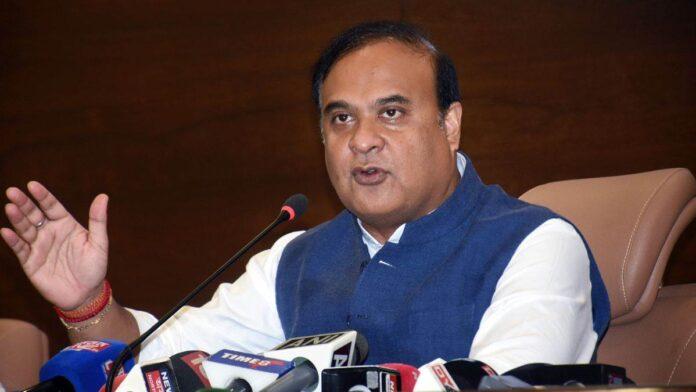Assam Chief Minister Himanta Biswa Sarma on Saturday said that the central government has approved Rs 9,000 crore for the betterment of judicial infrastructure in the country and Assam will get around Rs 300 crore as its share.
Addressing at the Diamond Jubilee celebrations of the Bar Council of North Eastern States in Guwahati, Sarma said, the Center has approved Rs 9,000 crore for improving judicial infrastructure and Assam will receive around Rs 300 crore as its share. . Apart from this, the state government will give another Rs 300 crore in this regard.
He further said that the Assam government will create around 100 new posts in the lower judiciary.
He said, as a step towards faster delivery of justice in the state by the Assam government, around 100 new posts in the lower judiciary would be created.
Sarma was the Guest of Honor at the Diamond Jubilee Celebrations of the Bar Council of Assam, Nagaland, Mizoram, Arunachal Pradesh and Sikkim at Machkhowa, ITA Cultural Complex in Guwahati.
The Chief Minister also said that the State Government is considering various welfare schemes for those retiring from active practice. He also stressed on the need to expedite the justice delivery mechanism.
He said that many people are hesitant to seek legal help even if they are a victim of circumstances, as the pursuit of justice often becomes a costly affair, as it involves a lengthy process.
He appealed, I call upon the office bearers of the Bar Council to find out how it can play its part in helping the weak and the underprivileged.
Speaking on the history of the country’s judicial system, the Chief Minister appreciated it for providing a strong foundation to the country’s democracy.
Sarma commended the judiciary for upholding the rule of law and ensuring that the fundamental rights and freedoms of the citizens of this country are upheld.
Sarma also praised the judiciary for protecting the rights of Indian women, as well as upholding their dignity through landmark judgments on subjects like triple talaq, daughter’s property rights, etc.
Describing the judiciary as a great arbiter, he said that the landmark judgment in the Ram Janmabhoomi case in 2019 addressed the claims of all stakeholders and resolved this long-standing issue in the most remarkable and amicable manner.
The Chief Minister lauded the Indian judiciary for strengthening the legal and constitutional framework of the country, which he said derives from several landmark judgments passed by it. He said that it has earned a global distinction as the judiciary which seeks to build a progressive jurisprudence.
The Chief Minister expressed confidence that judicial institutions will always remain the watchdogs of justice and the guiding force of the world’s largest functional democracy.
Chief Minister Sarma also referred to the judiciary as the savior of Indian democracy, saying that its landmark decisions on subjects like “infrastructure” saved the Constitution from losing its spirit.
He appreciated the Bar Council for its activities like orientation program for advocates, steps towards digitization of records etc.
The Chief Minister praised the Bar Council for performing regulatory functions, raising the standard of practice in the legal service profession.
Speaking on the long and illustrious history of the country’s judicial system, he lauded it for providing a strong foundation to the country’s democracy.
Our judiciary has not limited its powers only in delivering justice, he said, adding that this sacred institution empowers our citizens to be well informed about their rights and uphold them through its proclamations. has been a major catalyst.
Referring to the Vedas, Upanishads and other ancient texts, the Chief Minister touched upon the rich tradition of law in the country since ancient times.
He credits law/justice for achieving a prominent position in ancient times to practitioners of various philosophical schools in ancient India.
There is no doubt that the modern Indian judiciary is partly a continuation of the legal system of the British Raj.
The Chief Minister said, however, a fact still persists that from time immemorial, our country had a well-developed system of administration of justice.
Ancient Indian law was based on the doctrine of Dharma or Nyaya which talked about the principle of natural justice. This is the same principle that rules our judicial system even today.
Referring to lawyers as one of the most important components of our judicial system, the Chief Minister called them a bridge that connects the judicial system with the people seeking justice.




